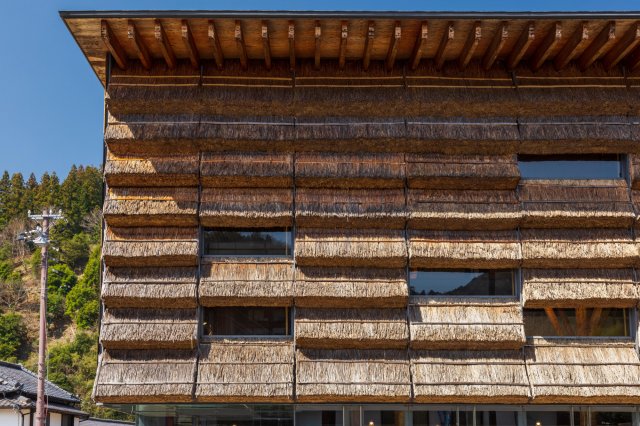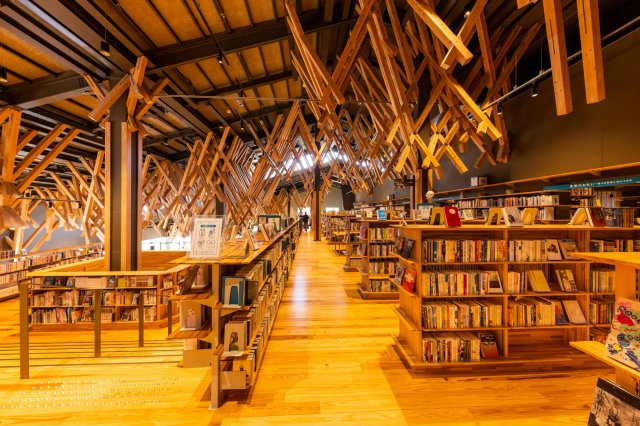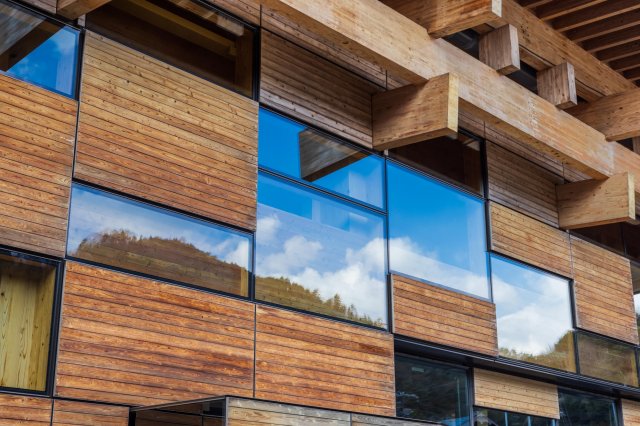- 2022.09.20
-
The mind and philosophy of Japan's beloved architect
Kengo Kuma is a prolific Japanese architect, perhaps best known for designing the Japan National Stadium, which was the centerpiece of the Tokyo 2020 Olympics. Highly respected not only in Japan but around the world, Kengo Kuma is one of the most important architects of our time. So why, of all places in Japan, did he locate so many of his gorgeous buildings in the small, mountainous town of Yusuhara?
It all began over 30 years ago, when a community group in Yusuhara reached out to Kengo Kuma in the hopes that he would help preserve and reconstruct the Yusuhara-za, a rustic town theater built in 1948. Not only did he agree to join the preservation effort, he was intensely captivated by the theater's masterful woodwork. This marked the beginning of a lifelong connection with Yusuhara, as he later became involved with designing several buildings for the town's revitalization project
Kengo Kuma often describes his style and philosophy as creating ""an architecture of defeat"". To him, architecture is not about creating designs that compete with its surroundings in order to stand out, but in fact, surrender to it and blend in. ""Defeat"" can also refer to creatively and proactively working with the limitations of budget or space instead of fighting against their inevitability
Furthermore, he prefers materials that are more natural and embody a certain warmth, like wood or fabric. This is based on his belief that these materials can help relieve stress and offer a deeper sense of serenity compared to cold metals and harsh concrete. His use of wood is also rooted in his passion and wish for human-nature harmony
The first picture shows Machi-no-Eki Yusuhara, located in the heart of the town. The exterior is made of thatch, which has natural ventilation and insulation features. The design is also inspired by traditional tea houses that served as welcoming communal spaces for travelers and locals
Come discover Kengo Kuma's world in Yusuhara Town: https://visitkochijapan.com/en/see-and-do/10029
It all began over 30 years ago, when a community group in Yusuhara reached out to Kengo Kuma in the hopes that he would help preserve and reconstruct the Yusuhara-za, a rustic town theater built in 1948. Not only did he agree to join the preservation effort, he was intensely captivated by the theater's masterful woodwork. This marked the beginning of a lifelong connection with Yusuhara, as he later became involved with designing several buildings for the town's revitalization project
Kengo Kuma often describes his style and philosophy as creating ""an architecture of defeat"". To him, architecture is not about creating designs that compete with its surroundings in order to stand out, but in fact, surrender to it and blend in. ""Defeat"" can also refer to creatively and proactively working with the limitations of budget or space instead of fighting against their inevitability
Furthermore, he prefers materials that are more natural and embody a certain warmth, like wood or fabric. This is based on his belief that these materials can help relieve stress and offer a deeper sense of serenity compared to cold metals and harsh concrete. His use of wood is also rooted in his passion and wish for human-nature harmony
The first picture shows Machi-no-Eki Yusuhara, located in the heart of the town. The exterior is made of thatch, which has natural ventilation and insulation features. The design is also inspired by traditional tea houses that served as welcoming communal spaces for travelers and locals
Come discover Kengo Kuma's world in Yusuhara Town: https://visitkochijapan.com/en/see-and-do/10029


